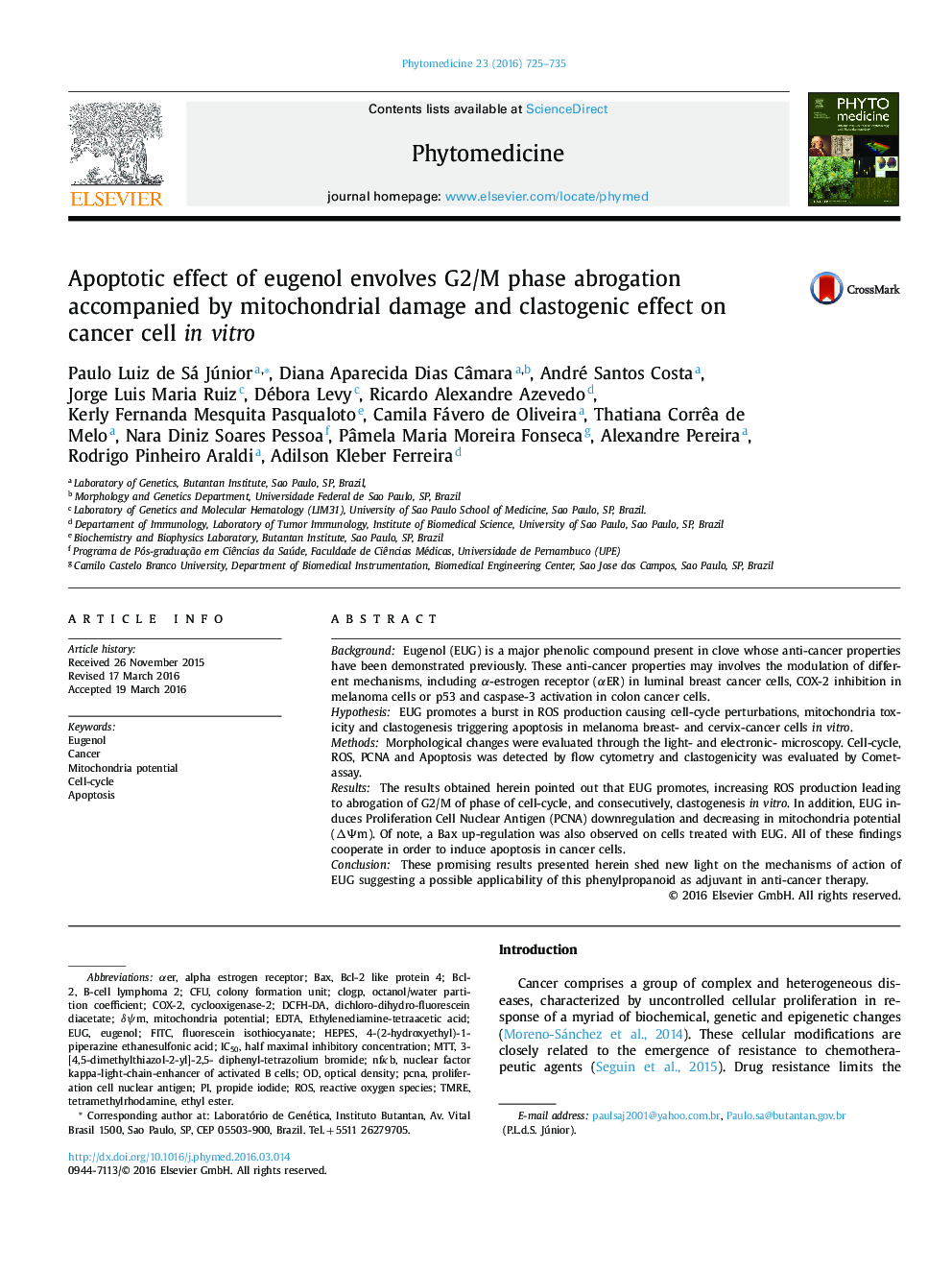| Article ID | Journal | Published Year | Pages | File Type |
|---|---|---|---|---|
| 2496309 | Phytomedicine | 2016 | 11 Pages |
BackgroundEugenol (EUG) is a major phenolic compound present in clove whose anti-cancer properties have been demonstrated previously. These anti-cancer properties may involves the modulation of different mechanisms, including α-estrogen receptor (αER) in luminal breast cancer cells, COX-2 inhibition in melanoma cells or p53 and caspase-3 activation in colon cancer cells.HypothesisEUG promotes a burst in ROS production causing cell-cycle perturbations, mitochondria toxicity and clastogenesis triggering apoptosis in melanoma breast- and cervix-cancer cells in vitro.MethodsMorphological changes were evaluated through the light- and electronic- microscopy. Cell-cycle, ROS, PCNA and Apoptosis was detected by flow cytometry and clastogenicity was evaluated by Comet-assay.ResultsThe results obtained herein pointed out that EUG promotes, increasing ROS production leading to abrogation of G2/M of phase of cell-cycle, and consecutively, clastogenesis in vitro. In addition, EUG induces Proliferation Cell Nuclear Antigen (PCNA) downregulation and decreasing in mitochondria potential (ΔΨm). Of note, a Bax up-regulation was also observed on cells treated with EUG. All of these findings cooperate in order to induce apoptosis in cancer cells.ConclusionThese promising results presented herein shed new light on the mechanisms of action of EUG suggesting a possible applicability of this phenylpropanoid as adjuvant in anti-cancer therapy.
Graphical abstractFigure optionsDownload full-size imageDownload high-quality image (154 K)Download as PowerPoint slide
